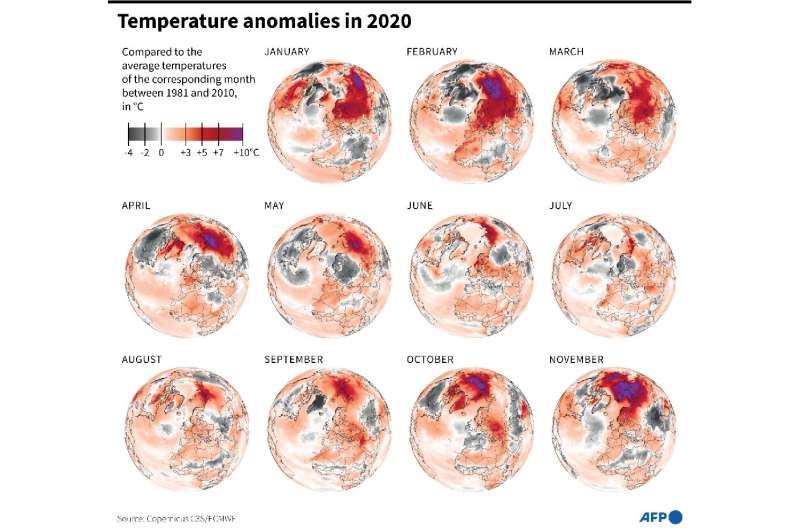#Southern France set to sizzle due to climate change

“#Southern France set to sizzle due to climate change”

That dream house in southern France that so many fantasise about is going to become uncomfortably hot in coming decades, according to new climate change projections Monday by the country’s national weather service.
Even if humanity manages to modestly reduce greenhouse gas emissions—which so far has only happened during a raging pandemic or a global recession—France as a whole is on track to heat up nearly three degrees Celsius above pre-industrial levels by about 2070, Meteo France said in a report.
And if carbon pollution continues unabated, average annual temperatures across the nation will, by century’s end, soar 4.5C beyond that benchmark.
That is verging on an unliveable world, a raft of climate studies have shown.
With just over 1C of warming so far, the planet has seen a sharp crescendo in deadly extreme weather, including heatwaves and megastorms made more destructive by rising seas.
The 2015 Paris climate treaty set a goal of capping global warming at below 2C, and 1.5C if possible.
Earlier climate models have predicted that France and the Mediterranean basin will be hit especially hard by heatwaves along with declining rainfall, and that reality has begun to bite.
In the summer of 2019, temperatures in picturesque wine country north of the coastal city of Montpellier reached a sizzling 46C, a national record. Paris was only a few degrees cooler.

More heatwaves, less snow
This and other heatwaves “were a direct consequence of climate change,” said Meteo France CEO Virginie Schwarz in a statement.
“All observations made across the planet confirm an unprecedented acceleration of climate change.”
The 100-page report looked at how three different carbon pollution scenarios could shape France’s climate future: a drastic reduction in carbon pollution coupled with the large-scale removal of CO2 from the air; a reckless ramping up of the fossil fuel use which caused the problem to begin with; and a path somewhere between these increasingly unlikely extremes.
Meteo France climatologists, on the frontlines of global climate science, also zoomed in with an unprecedented resolution of 10 square kilometres, making it possible to distinguish climate micro-regions.
Global projections, by contrast, divvy up the planet into pieces 10 to 15 times that size.
The middle-of-the-road greenhouse gas emissions scenario, known as RCP4.5, will see an additional 10 to 15 days of extreme heat per year towards the end of the century. Periods of drought will expand by about 30 percent.
In the worst-case scenario—which scientists cannot exclude—southern France could experience one or two months of continuous heatwaves by 2100.
Eight consecutive days of above 40C weather in 2003 caused at least 15,000 heat-related deaths France, especially among the elderly.
The new report said high mountain regions will see the most dramatic hike in temperatures, up to 6C or 7C above levels at the start of this century.
Even in the less dire RCP4.5 projections, the number of days with at least half-a-metre of fresh snow will drop by half in the Pyrenees and southern Alps, shortening ski seasons in both mountain ranges.
Lake heatwaves may become hotter and longer, new study suggests
© 2021 AFP
Citation:
Southern France set to sizzle due to climate change (2021, February 1)
retrieved 1 February 2021
from https://phys.org/news/2021-02-southern-france-sizzle-due-climate.html
This document is subject to copyright. Apart from any fair dealing for the purpose of private study or research, no
part may be reproduced without the written permission. The content is provided for information purposes only.
If you liked the article, do not forget to share it with your friends. Follow us on Google News too, click on the star and choose us from your favorites.
For forums sites go to Forum.BuradaBiliyorum.Com
If you want to read more Like this articles, you can visit our Science category.




